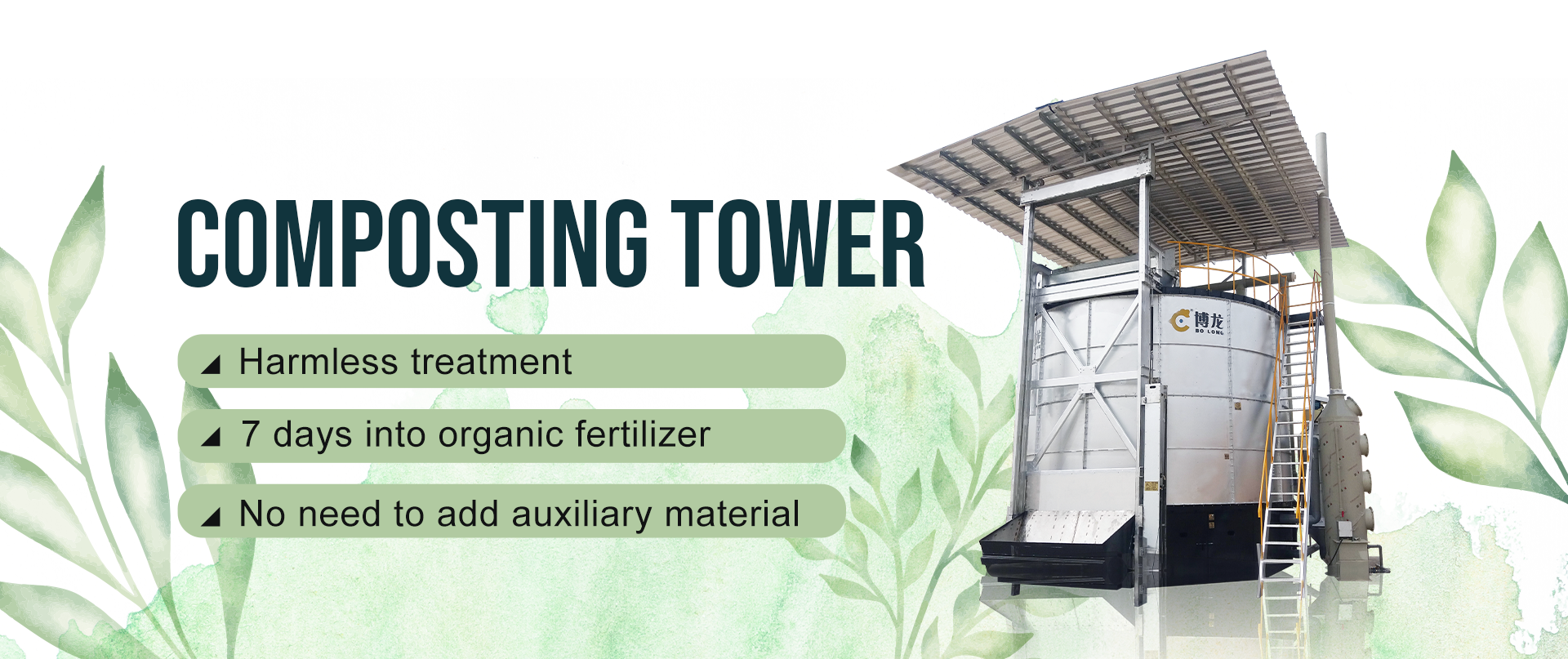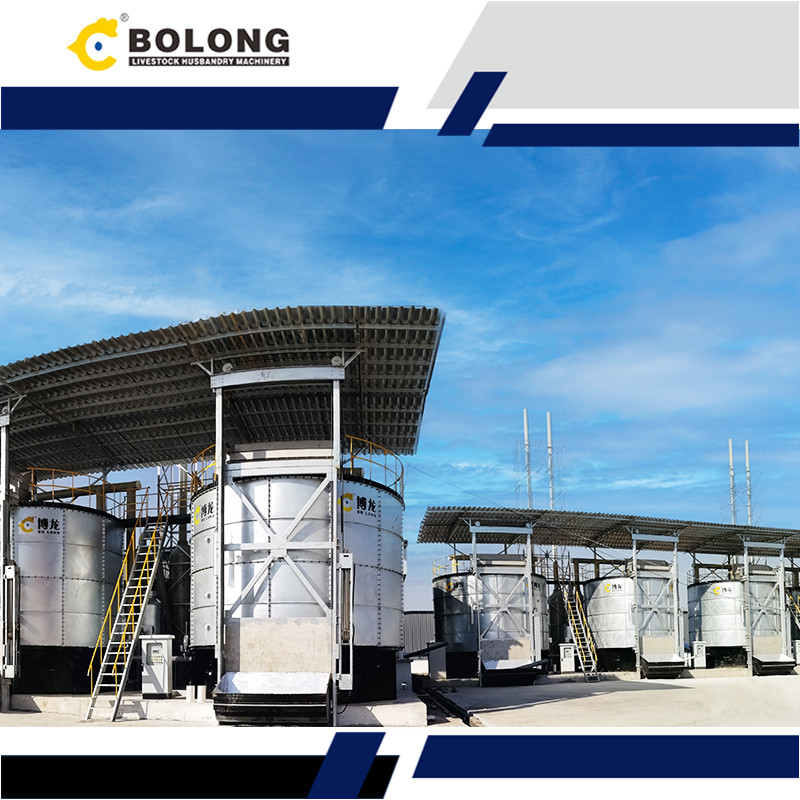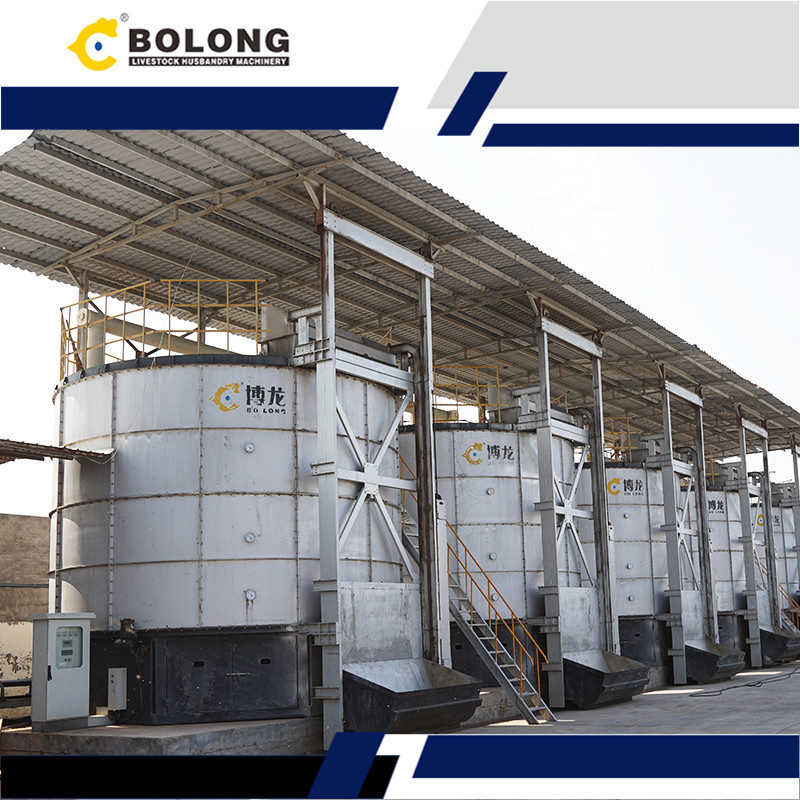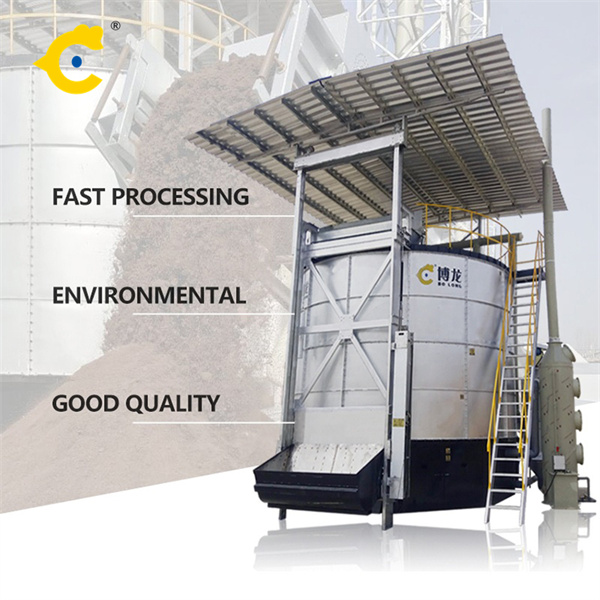Poultry fermentation tanks have revolutionized waste management in poultry farms. By providing an efficient method to handle poultry manure, these tanks not only mitigate environmental pollution but also convert waste into valuable resources. In this article, we delve into the working principle of poultry fermentation tanks and explore their numerous advantages.

Understanding Poultry Fermentation Tanks
Poultry fermentation tanks are specialized equipment designed to process poultry manure through aerobic fermentation. The primary goal is to decompose organic matter in the manure, reduce its volume, and eliminate pathogens. The process involves maintaining optimal conditions for microorganisms to break down the waste efficiently.
How They Work:
Collection and Input: Poultry manure is collected and transported to the fermentation tank.
Aeration: The tank is equipped with an aeration system that supplies oxygen to the microorganisms.
Temperature Control: The system maintains the ideal temperature range for microbial activity.
Microbial Action: Beneficial microorganisms decompose the organic matter, converting it into compost or other useful by-products.
Output: The processed material is removed from the tank and can be used as organic fertilizer or soil conditioner.
Key Advantages of Poultry Fermentation Tanks
Poultry fermentation tanks offer several benefits, making them a preferred choice for modern poultry farms. Here are the key advantages:
Efficient Waste Management:
Volume Reduction: The fermentation process significantly reduces the volume of poultry manure, making it easier to handle and transport.
Pathogen Elimination: High temperatures during fermentation effectively kill harmful pathogens, ensuring safer handling of the manure.
Environmental Benefits:
Odor Control: The controlled fermentation process minimizes foul odors typically associated with raw poultry manure.
Pollution Reduction: Proper waste management reduces the risk of groundwater and soil contamination from untreated manure.
Resource Recovery:
Organic Fertilizer Production: The end product of fermentation can be used as high-quality organic fertilizer, enriching soil fertility and promoting sustainable agriculture.
Biogas Generation: Some advanced fermentation systems capture biogas, which can be used as a renewable energy source.
Economic Advantages:
Cost Savings: By reducing waste volume and converting it into valuable by-products, poultry farms can lower their waste management costs.
Revenue Generation: Selling the produced organic fertilizer provides an additional revenue stream for poultry farms.
Sustainability:
Circular Economy: Poultry fermentation tanks promote a circular economy by transforming waste into resources, contributing to sustainable farming practices.
Energy Efficiency: Modern tanks are designed to be energy-efficient, reducing the overall carbon footprint of the farm.
Implementing Poultry Fermentation Tanks in Farms
Adopting poultry fermentation tanks requires careful planning and consideration. Here are some steps to ensure successful implementation:
Assessment of Needs:
Farm Size: Determine the appropriate tank size based on the volume of manure generated by the farm.
Budget: Evaluate the initial investment and potential cost savings to justify the purchase.
Choosing the Right Tank:
Technology: Select a tank equipped with advanced aeration and temperature control systems for optimal performance.
Capacity: Ensure the tank has sufficient capacity to handle the farm’s waste output.
Installation and Training:
Professional Setup: Hire professionals for the installation to ensure proper setup and integration with existing farm operations.
Staff Training: Train farm staff on the operation and maintenance of the tank to maximize its efficiency and lifespan.
Monitoring and Maintenance:
Regular Checks: Conduct regular inspections and maintenance to prevent malfunctions and ensure continuous operation.
Microbial Management: Monitor microbial activity and make necessary adjustments to maintain optimal fermentation conditions.
Conclusion
Poultry fermentation tanks represent a significant advancement in agricultural waste management. By understanding their working principles and recognizing their advantages, poultry farmers can make informed decisions to enhance their operations. The benefits of efficient waste management, environmental sustainability, resource recovery, and economic gains make poultry fermentation tanks an essential tool for modern poultry farming.




Bolong, a leading deodorizing composting machine manufacturer since 1993, debuts its latest tech at the expo. Using water washing, activated carbon, and microbial deodorization, it solves farm odor problems. With advanced production lines ensuring quality, Bolong offers exclusive discounts now. Don’t miss this chance to transform your farm! Click to explore and get preferential prices and free support.